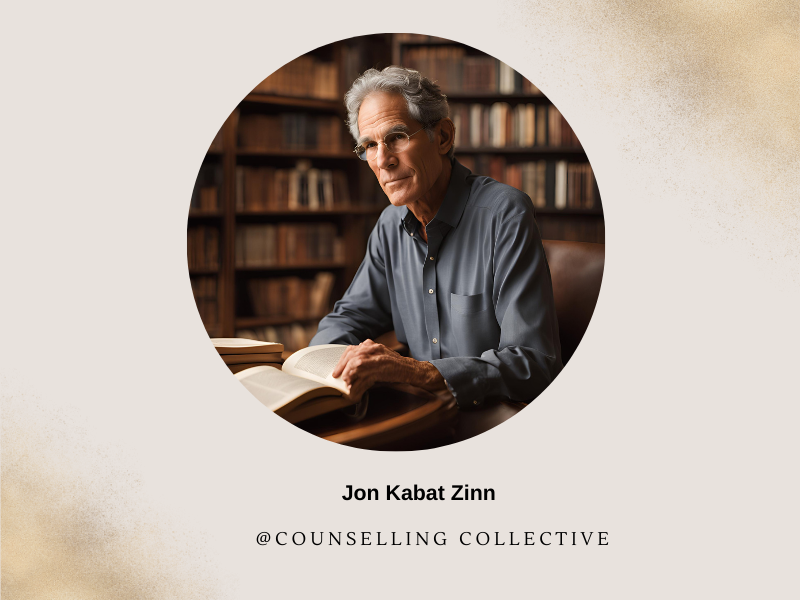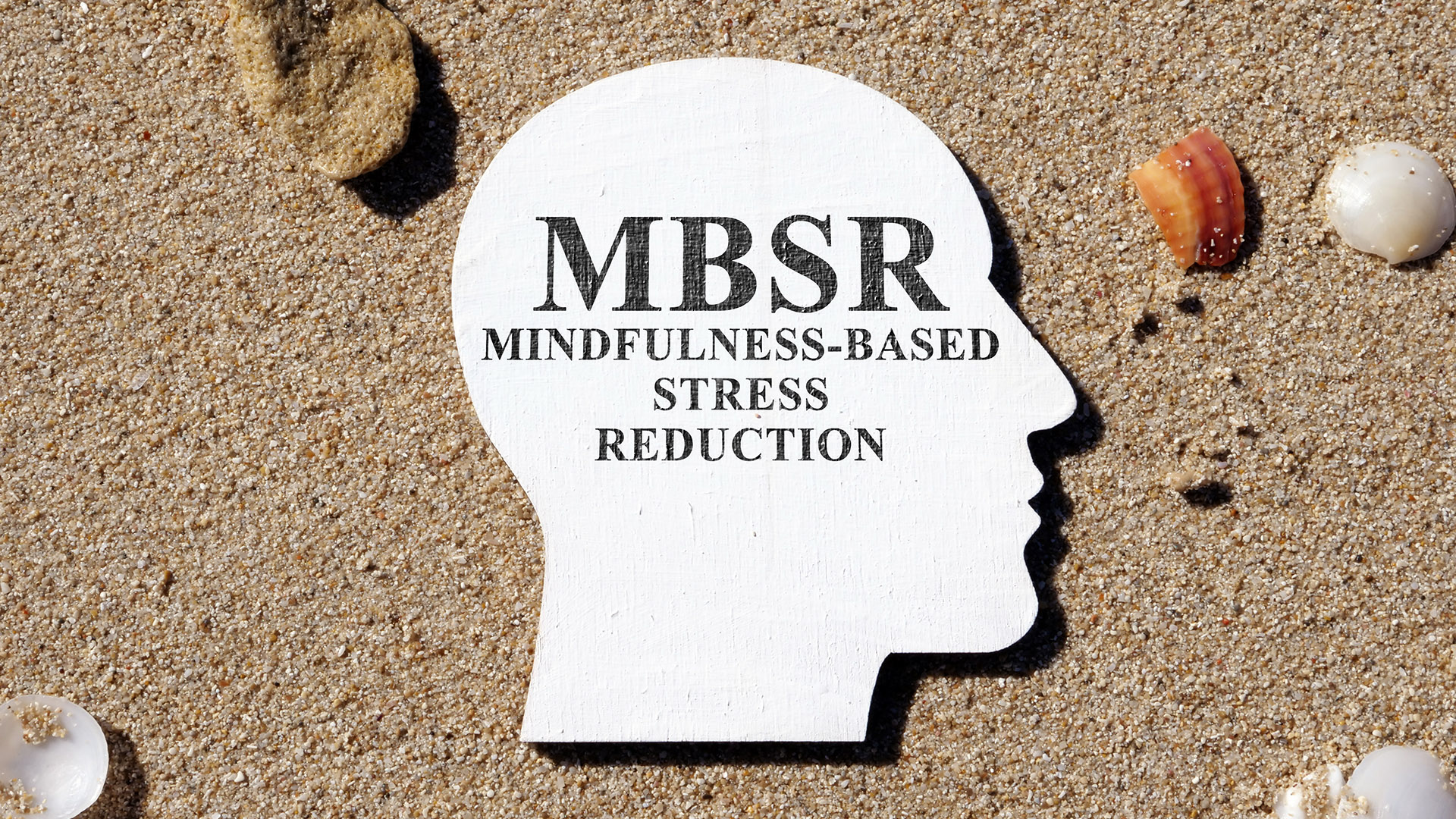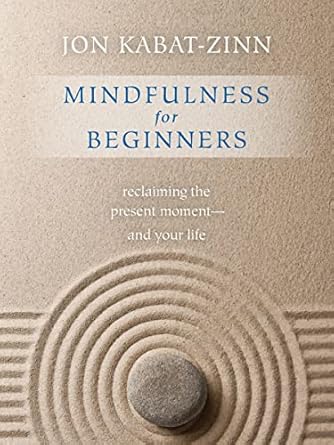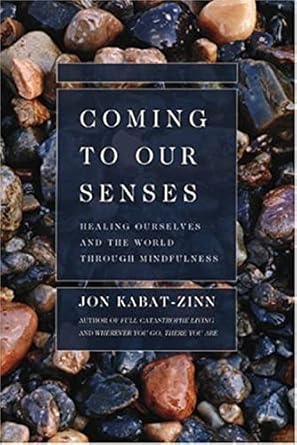Contents
Introduction
Jon Kabat-Zinn is a pioneering American professor of medicine, known for his groundbreaking work in the field of mindfulness and stress reduction. He is the creator of Mindfulness-Based Stress Reduction (MBSR), a therapeutic approach that integrates mindfulness practices into mainstream healthcare to help individuals manage stress, pain, and illness. Kabat-Zinn’s work has been instrumental in popularizing mindfulness in the West and making it a part of medical and psychological treatment.

His teachings have had a profound influence on modern psychology, medicine, and well-being practices, bridging the gap between Eastern mindfulness traditions and Western science. This article explores Kabat-Zinn’s life, his contributions to the development of MBSR, and the impact of his work on modern healthcare and psychology.
Early Life and Education
Jon Kabat-Zinn was born on June 5, 1944, in New York City, in a family that fostered intellectual curiosity. His father, a prominent immunologist, and his mother, a painter, created an environment rich in scientific and artistic exploration. This unique upbringing sparked Kabat-Zinn’s fascination with the human mind and consciousness during his teenage years, prompting him to explore into the philosophical questions about human experience. His quest for understanding led him to explore both Western psychology and Eastern meditative practices, shaping his future contributions to mindfulness and health.
Image Source: jonkabat-zinn.com

Educational Journey
| Aspect | Details |
|---|---|
| Undergraduate Education | Jon Kabat-Zinn earned his bachelor’s degree in Biology from Haverford College in 1964, where he developed an interest in understanding the mind-body connection. |
| Graduate Studies | He pursued a Ph.D. in Molecular Biology at MIT under Nobel laureate Salvador Luria, blending his scientific training with an interest in consciousness and meditation. |
| Mindfulness Training | Jon Kabat-Zinn studied Zen Buddhism under Thich Nhat Hanh and Seung Sahn, focusing on mindfulness meditation and its application to stress and well-being. |
| Academic Positions | Kabat-Zinn became a professor at the University of Massachusetts Medical School, where he developed Mindfulness-Based Stress Reduction (MBSR), integrating mindfulness practices into modern healthcare. |
Influences and Early Career
| Aspect | Details |
|---|---|
| Zen Buddhism | Kabat-Zinn was heavily influenced by Thich Nhat Hanh and Seung Sahn, who introduced him to the principles of mindfulness meditation. These teachings formed the foundation of his approach to MBSR. |
| Molecular Biology | His background in molecular biology gave Kabat-Zinn a scientific perspective, allowing him to approach mindfulness with a research-based framework, validating its benefits through empirical studies. |
| Mind-Body Medicine | Jon Kabat-Zinn was inspired by the emerging field of mind-body medicine, which explores how mental and emotional states influence physical health. He aimed to create a systematic approach to incorporating mindfulness into medical treatment. |
| Stress and Illness | Jon Kabat-Zinn’s clinical work focused on treating individuals suffering from chronic pain, stress, and illness. His early career experiences highlighted the need for a holistic approach to health that included mental well-being. |
| Integrative Medicine | Kabat-Zinn was also influenced by the concept of integrative medicine, which emphasizes the importance of combining conventional medicine with alternative therapies such as mindfulness and meditation. |
Major Theories and Work

Mindfulness-Based Stress Reduction (MBSR)
Jon Kabat-Zinn is best known for creating Mindfulness-Based Stress Reduction (MBSR), a structured 8-week program designed to help individuals manage stress, anxiety, chronic pain, and other health conditions through the practice of mindfulness meditation.
- Development of MBSR: Kabat-Zinn developed MBSR in 1979 at the University of Massachusetts Medical School, where he established the Stress Reduction Clinic. MBSR integrates mindfulness meditation, body awareness, and yoga to teach individuals how to cultivate mindfulness in their daily lives and manage physical and emotional challenges.
- Clinical Applications: MBSR has been widely applied in clinical settings to help patients suffering from conditions such as chronic pain, anxiety, depression, cardiovascular disease, and cancer.
Image Source: lifestance.com
Jon Kabat-Zinn’s work has been instrumental in integrating mindfulness practices into mainstream healthcare, creating a model that combines Eastern meditative practices with Western medicine.
- Scientific Validation: One of Kabat-Zinn’s key contributions was providing scientific validation for mindfulness practices. Through rigorous clinical trials and empirical research, he demonstrated that mindfulness could be a powerful tool for reducing stress and improving health outcomes.
- Mind-Body Connection: Kabat-Zinn’s research emphasizes the profound connection between the mind and body, showing that mental states such as stress, anxiety, and depression can exacerbate physical illness, while mindfulness can promote healing and resilience.
Image Source: cykoshealthcareltd.uk

Integrating Mindfulness into Healthcare
Famous Books and Publications

Wherever You Go, There You Are

Mindfulness for Beginners

The Healing Power of Mindfulness

Coming to Our Senses
Influence on Contemporary and Future Psychological Research
- Mindfulness Research: Jon Kabat-Zinn’s development of Mindfulness-Based Stress Reduction (MBSR) has initiated a significant increase in mindfulness research across multiple disciplines, including psychology, neuroscience, and medicine. His pioneering work has inspired thousands of studies examining the effects of mindfulness on mental health, emotional regulation, and physical well-being, establishing a robust foundation for future research.
- Neuroscience of Mindfulness: Kabat-Zinn’s contributions have greatly influenced neuroscience research, particularly in exploring how mindfulness practices impact brain function. Numerous studies indicate that mindfulness can lead to both structural and functional changes in brain regions associated with attention, emotion regulation, and self-awareness. These findings underscore the profound cognitive effects of mindfulness practices on brain health.
- Mindfulness and Mental Health: The impact of Kabat-Zinn’s work on mental health treatment is profound, particularly for conditions like anxiety, depression, and PTSD. His research demonstrates that mindfulness-based interventions can significantly enhance psychological well-being, alleviate symptoms of mental illness, and boost overall emotional resilience. This has led to widespread adoption of mindfulness techniques in therapeutic settings.
- Behavioral Medicine: Kabat-Zinn’s focus on the mind-body connection has significantly influenced behavioral medicine, promoting holistic healthcare approaches that incorporate mindfulness and stress reduction techniques. His work encourages integrating mindfulness practices into treatment plans for chronic illness and pain management, thereby improving patients’ overall health outcomes and quality of life.
- Education and Corporate Settings: Beyond healthcare, Kabat-Zinn’s research has extended into education and corporate environments, fostering the implementation of mindfulness programs in schools, universities, and workplaces. These initiatives aim to enhance focus, reduce burnout, and improve emotional intelligence, showcasing the versatility and effectiveness of mindfulness in various contexts.
Psychologists and Educators Influenced by Jon Kabat-Zinn

- Zindel Segal: A co-developer of Mindfulness-Based Cognitive Therapy (MBCT), Segal drew heavily from Jon Kabat-Zinn’s Mindfulness-Based Stress Reduction (MBSR) program. He adapted mindfulness practices specifically to help individuals manage depression and prevent relapse. By combining mindfulness techniques with cognitive-behavioral therapy, Segal has contributed significantly to therapeutic approaches that address emotional health.
- John Teasdale: Teasdale’s work on MBCT was deeply inspired by Kabat-Zinn’s mindfulness techniques. Collaborating with Mark Williams and Zindel Segal, he integrated mindfulness practices into cognitive therapy to aid individuals in managing depression and emotional dysregulation. His contributions have been vital in shaping modern therapeutic frameworks that incorporate mindfulness.
- Richard Davidson: A leading neuroscientist, Davidson’s research into the neuroscience of mindfulness has been shaped by Kabat-Zinn’s foundational work. He has conducted extensive studies on how mindfulness practices influence brain structure and function, particularly in areas associated with emotional regulation and attention. Davidson’s insights have helped bridge the gap between neuroscience and psychology.
- Mark Williams: Another key co-developer of MBCT, Williams was significantly influenced by Kabat-Zinn’s integration of mindfulness into clinical settings. He has continued to expand on this foundation, advocating for mindfulness as an effective treatment for anxiety and stress-related disorders. Williams’ efforts have further solidified mindfulness as a crucial element in contemporary psychotherapy.
- Daniel Goleman: Renowned for his exploration of emotional intelligence, Goleman has been influenced by Kabat-Zinn’s research on mindfulness. He emphasizes the importance of mindfulness practices in fostering emotional intelligence and enhancing overall well-being.
Impact on Psychology
- Influence on Modern Thought: Jon Kabat-Zinn’s development of Mindfulness-Based Stress Reduction (MBSR) has fundamentally changed how stress, chronic illness, and mental health are treated. His work emphasizes the importance of mindfulness in managing both physical and emotional well-being, challenging the traditional divide between mind and body in healthcare. Kabat-Zinn’s integration of Eastern mindfulness practices with Western science has provided a comprehensive framework for understanding the mind-body connection, influencing fields as diverse as psychology, medicine, and education. His research has made mindfulness a mainstream practice, shaping modern approaches to healthcare, mental health, and personal development.
- Legacy and Recognition: Kabat-Zinn’s contributions have earned him widespread recognition and numerous awards for his pioneering work in mindfulness and stress reduction. His work has been instrumental in transforming healthcare, particularly in treating chronic pain, anxiety, and depression. Kabat-Zinn’s books, lectures, and mindfulness programs have reached millions of people worldwide, ensuring his lasting influence on both clinical practice and personal well-being. His legacy as a thought leader and innovator continues to shape how individuals and institutions approach health, well-being, and mindfulness.
Conclusion
Jon Kabat-Zinn’s development of Mindfulness-Based Stress Reduction (MBSR) has had a profound and lasting impact on the fields of psychology, medicine, and personal well-being. By integrating mindfulness practices with modern healthcare, Kabat-Zinn provided a new therapeutic framework for managing stress, chronic illness, and emotional challenges. His enduring legacy as a pioneer of mindfulness-based interventions continues to shape contemporary psychological research, clinical practice, and personal health practices, ensuring that his contributions will influence future generations.
Bibliography
- Kabat-Zinn, J. (1990). Full Catastrophe Living: Using the Wisdom of Your Body and Mind to Face Stress, Pain, and Illness. Delacorte Press.
- Kabat-Zinn, J. (1994). Wherever You Go, There You Are: Mindfulness Meditation in Everyday Life. Hyperion.
- Kabat-Zinn, J. (2005). Coming to Our Senses: Healing Ourselves and the World Through Mindfulness. Hyperion.
- Kabat-Zinn, J., & Davidson, R. J. (2011). The Mind’s Own Physician: A Scientific Dialogue with the Dalai Lama on the Healing Power of Meditation. New Harbinger Publications.
- Kabat-Zinn, J., Segal, Z. V., Williams, J. M. G., & Teasdale, J. D. (2007). The Mindful Way Through Depression: Freeing Yourself from Chronic Unhappiness. Guilford Press.
- Kabat-Zinn, J. (2013). Mindfulness for Beginners: Reclaiming the Present Moment—and Your Life. Sounds True.
- Davidson, R. J., & Kabat-Zinn, J. (2004). Mindfulness and Meditation: Fostering Resilience in Health and Well-Being. Annals of the New York Academy of Sciences.
- Kabat-Zinn, J. (2018). The Healing Power of Mindfulness: A New Way of Being. Hachette Books.
- Kabat-Zinn, J. (2003). Mindfulness-Based Interventions in Context: Past, Present, and Future. Clinical Psychology: Science and Practice.
- Kabat-Zinn, J. (2002). Mindfulness Meditation: Bringing the Mind and Body Together. Journal of the American Medical Association.
